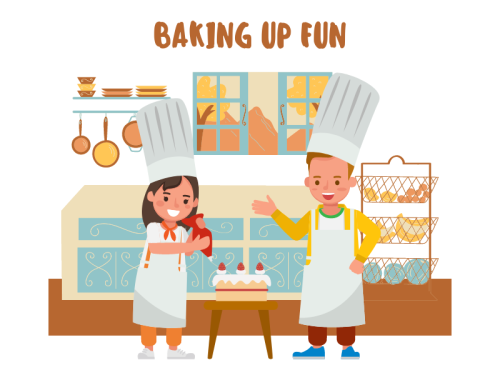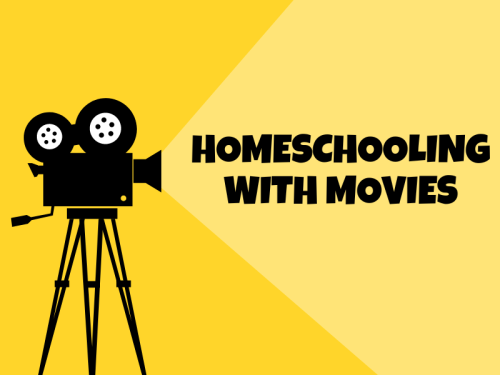
Summer is a wonderful time to allow kids to be kids. Let them run around and play all day outside in the fresh air. Play is the best way for children to have hands on learning experiences! In addition to that, it is one of the best ways for children to practice their social and problem-solving skills. Encourage free play!
Time off in the summer is much needed for students, teachers and parents alike. However, while children are off for a few months, it is natural to be concerned about them losing some of the skills that they had been working so hard to develop throughout the year. We compiled a list of activities for you to do at home with your kids that can use their learned skills in a fun and exciting ways. Try them out and then leave us a comment below telling us how it went!
27 Ways to Curb Summer Learning Loss
- Encourage children to PLAY. Through their own play, they will be able to follow their own curiosities allowing them to learn and discover.
- Go on a nature walk. See a strange tree, bug or flower? Take a picture of it or bring a notepad and draw a picture of it. Look it up when you get home and try to learn more about it!
- Sidewalk chalk is going to be your best friend. It is great for children of all ages, including adults! Use it to work on shapes. Draw a big shape and have your child color it and decorate it and tell you what it is.
- You can also use sidewalk chalk to practice colors! Let the child pick out whatever color they would like. Ask them questions like, what color did you choose? What things are that color?
- Take weekly trips to the library. If you have a very active reader, or a child who cannot read, this will help keep up their exposure to books and reading throughout the summer.
- Local libraries have lots of activities and reading programs in the summer. Get involved and check out what they have to offer! Often times, it is a social event so the children do not even realize they are still learning.
- Talk about recycling and reusing materials instead of throwing them away. For a week, collect and clean out all of the recyclable materials that you would normally throw away. Gather them on a table and have your children build something with them. This opens the door for a great discussion on recycling.
- Rainy day. Write and illustrate your own book!
- Encourage movement! Keep your children active and moving by creating an obstacle course in your yard. It doesn't have to be fancy.
- Work on life skills. Have your child help you plan meals. Write a grocery list of what is needed and then have them go shopping with you!
- Expand on the grocery shopping learning experience by incorporating a money component. Have your child look at an ad, write how much everything will cost and the add up the total to make a budget for the shopping trip.
- Practice telling time by making a schedule for the day or for the week. You could even turn this into an art project by using a big poster board! Work with your child to create a schedule and then as the day goes by, ask them what time it is and how much time until the next activity.
- Measuring skills are very important. Give your child a ruler or a measuring tape and let them go wild! Maybe they want to measure the perimeter of your yard, or they can measure the height of their siblings or favorite toys.
- Did you go on a trip over the summer? Maybe you went somewhere as simple as a new park or new grocery store. Use this opportunity to have your child tell you the similarities and differences they noticed about that place. Maybe it was very similar to what they are used to. Or, it could be very different. Have them use critical thinking skills to tell you about what they noticed.
- Write a letter. Sounds simple, right? This is a great activity to have your child connect with a friend or family member (the old school way!). It allows them to practice their writing skills and it is a great opportunity to teach them how to format a letter, address an envelope and the process of mailing the letter. Take a field trip to the post office to drop it off. Or, wait for the mailman to come pick the letter up so your child can see what happens to their letter.
- Want to include some easy science activities? Make homemade bubbles using dish soap and water. Have your children experiment making their own bubble wands out of string, pipe cleaners and straws and see who can create the biggest bubble!
- Turn your house into a café. Create a menu and have your children help you make the food. You could even work on how to properly set a table. This activity is great because you can practice measuring the ingredients out with measuring cups and spoons.
- Make a point to say word problems to your children to have them figure out. Here are a few examples 1. “Mary, we had 5 popsicles in the freezer and you and I each ate one. How many are left?” Or, “it is 4:00 in the afternoon. We are having dinner at 5:30. How long until dinner?”
- Incorporate a word of the week! Pick a vocabulary word for you whole family to use. Post it on the refrigerator and make a point to use the word throughout the week and spell it. Keep each word and at the end of the summer look back on all of the new words that you learned! If your family wants, you can continue it all year long!
- Story time. Instead of just doing stories at bedtime. Try to find a point in the day where everyone in the house is reading, or a time you can read to your little ones! If your children are a little older, have them read to you!
- Play audiobooks while children are playing or doing chores. You could even have them act out the scenes. Have your children tell you about the characters, plot and what they think will happen next.
- Make your own playdough. It is inexpensive to make and children will get practice following directions and measuring ingredients out. Set out letter and number cookie cutters for them to use with it. They will be making words in no time!
- Bingo! Create a bingo board and play with your family. Mix it up, items on the bingo board might be shapes, spelling words or math facts! Boards only take a few minutes to make and they can create a whole night of fun!
- Plan a yard sale. Get your children involved in the process of getting rid of toys and items that are no longer used. They can help you set the prices and with the transactions to practice working with money exchanges.
- Have your children pick a city abroad and turn your house into that city for a day (or longer if they really get into it!). Talk about the type of money they use, what foods they eat and maybe even a few words in their language. You can even print out a map with the location of the city so the kids can learn where to find it on the map! Have your kids write a travel brochure for that city, you can make it colorful and even use some of the new words you learned.
- Visit a local museum. Sometimes they even have free admission days or activities. Take whatever the main exhibit is and learn more about it! Have your kids make a mini exhibit of it when they get back home.
- Start a summer photo album. Take pictures of everywhere you go and for things that you see along the way. Print the pictures out and put them in an album. Then have your child write a little blurb about each photo. This will practice writing skills. Do it weekly so they are only writing about a photo or two at a time. At the end of the summer you will have strong writing skills and a new family photo album!
Sarah Major, CEO of Child1st Publications, grew up on the mission field with her four siblings, all of whom her mother homeschooled. As an adult, Sarah has homeschooled a small group of children in collaboration with their parents, and has taught from preschool age to adult. Sarah has been the Title 1 director and program developer for grades K-7, an ESOL teacher, and a classroom teacher. As an undergraduate student, Sarah attended Wheaton College in Wheaton, Ill. and then received her M.Ed. from Aquinas College in Grand Rapids, MI. In 2006 Sarah resigned from fulltime teaching in order to devote more time to Child1st, publisher of the best-selling SnapWords™ stylized sight word cards. In her spare time Sarah enjoys gardening, cooking, pottery, quilting, and spending time with her family.
Child1st Publications, LLC
www.child1st.com
800-881-0912
PO Box 150226
Grand Rapids, MI 49515





